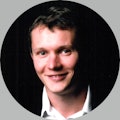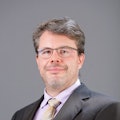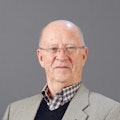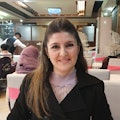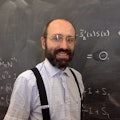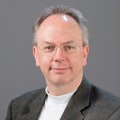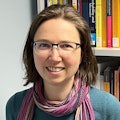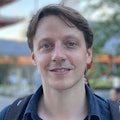Mathematical Analysis Research Group
Cardiff Analysis spans an exciting range of topics including spectral theory and spectral geometry, related areas such as analytic number theory and microlocal analysis, through to inverse problems, imaging, nonlinear PDEs, deterministic and stochastic homogenisation.
We are one of the leading analysis groups in the UK. From the 1960s through to the 1990s our main areas of expertise were spectral theory, operator theory, function spaces and linear partial differential equations, together with the applications of all these ideas in mathematical physics.
From 2007 onwards we have expanded our interests to encompass new areas including:
- convex analysis
- analysis in sub-Riemannian manifolds
- inverse problems and imaging
- nonlinear partial differential equations
- deterministic and stochastic homogenisation.
Our work includes the traditional Cardiff University expertise in analytic number theory and topics at the interface between analysis and number theory, such as spectral geometry.
We are an international group with researchers and academics from Germany, Israel, Italy, Russia and the USA, as well as the United Kingdom. Our international collaborations reflect this with ongoing projects with Bern, Birmingham (Alabama), Colorado School of Mines, Florence, Karlsruhe, Montréal, McGill, Padova, Pisa, Santiago, St Petersburg and the Weizmann Institute, as well as universities in the UK, in particular our colleagues in WIMCS and the GW4 group.
Recent past members of the group include Michael Levitin, Igor Wigman and Kirill Cherednichenko.
Research
Our main directions of research include:
- spectral theory, applications and numerical methods
- quantum mechanics, inverse problems
- asymptotic and variational methods for nonlinear partial differential equations, in particular (stochastic) homogenisation
- geometric and stochastic partial differential equations
- combinatorial and analytic number theory, special functions
- applications of analytical methods (e.g. image processing, medical genetics, scaling limits for interacting particle systems).
In focus
Spectral theory
In 1966 Mark Kac asked the programmatic question “Can one hear the shape of a drum?” - ie is a planar domain determined uniquely (up to congruence) by the spectrum of its Dirichlet Laplacian?
This question has since been answered in the negative, but spectral geometry - the study of how geometric and topological properties of domains and manifolds are reflected in the spectra of associated differential operators - is a flourishing mathematical area with ramifications to number theory and physics.
Our other interests in spectral theory include:
- operators of mathematical physics, for example stability questions involving qualitative and quantitative estimates and semiclassical asymptotics for operators derived from the Dirac operator of relativistic quantum mechanics, such as the Brown-Ravenhall operator, and extensions to a quantum field theoretic setting
- non-self-adjoint problems, including spectral approximation, spectral pollution and operator with special block structure
- inverse spectral problems, including imaging problems and Maxwell systems
- boundary triples and their applications to spectral theory of (systems of) PDEs.
Geometric and stochastic PDEs
Many physical problems, in particular those involving phase transition, nucleation and evolution equations for free boundaries and interfaces, involve mathematical models in which there is sufficient disorder on a sufficiently small length scale that the most effective analysis of their macroscopic solutions is through the analysis of partial differential equations with stochastic coefficients and scaling limits. We work on several topics in these areas, including:
- interfaces in heterogeneous and random media and associated nonlinear PDEs
- interacting Stochastic Processes and their scaling limits; stochastic nonlinear PDEs
- nonlinear PDEs and Stochastic Processes
- homogenization and Gamma-convergence
- scaling limits of singularly perturbed differential equations.
Another very modern approach to certain classes of nonlinear partial differential equations is through ideas from geometry. We have particular interests in problems involving sub-Riemannian manifolds, which are not isomorphic to Euclidean space at any length scale. In these contexts we have been able to adapt techniques from calculus of variations, and generalise notions of convexity, allowing us to treat subelliptic and ultraparabolic PDEs. These equations occur in many unexpected and new applications, including modelling the first layer of the visual cortex and problems in finance related to pricing Asian options.
Analytic number theory
Cardiff Number Theory was founded by Professor Christopher Hooley FRS and is still one of our most popular areas for doctoral study.
We are active in research on many classical topics:
- prime numbers
- the Riemann zeta function
- Dirichlet polynomials
- exponential sums
- Dedekind sums
- Kloosterman sums
- the modular group
- Maass wave forms
- the Selberg and Kuznetsov trace formulae
- lattice points in the plane and the Gauss circle problem
- different configurations of lattice points inside a moving shape, as well as integer points close to hypersurfaces and polytopes.
We are also interested in problems at the interface between number theory and spectral theory, usually arising from spectral geometry.
Projects
We are grateful to our research sponsors for the steady flow of funding which they have continued to provide over many years. Our past sponsors include the Leverhulme Trust, the European Union Marie Curie program and the Royal Society, as well as the EPSRC. Our current sponsors include the London Mathematical Society and the EPSRC who finance the following projects:
Meet the team
Events
Seminars
For an up-to-date programme of online talks, please see our calendar of events
Past events
- Mathematical Analysis Seminars 2019-20
- Mathematical Analysis Seminars 2017-18
- Mathematical Analysis Seminars 2015-16
Bath - WIMCS analysis meetings
25/09/2015
These meetings are sponsored by an LMS Scheme Three Grant.
South-West Network in Generalised Solutions for Nonlinear PDEs meetings
12/02/2016
These meetings are organised by Cardiff University, University of Reading and the University of Bath.
New trends in non linear PDEs
20/06/2016 - 25/06/2016
The aim of this workshop is to get together researchers within recently very active research areas connected to nonlinear partial differential equations (PDEs), in particular where these cross boundaries of mathematical disciplines.
Next steps
Research that matters
Our research makes a difference to people’s lives as we work across disciplines to tackle major challenges facing society, the economy and our environment.
Postgraduate research
Our research degrees give the opportunity to investigate a specific topic in depth among field-leading researchers.
Our research impact
Our research case studies highlight some of the areas where we deliver positive research impact.



